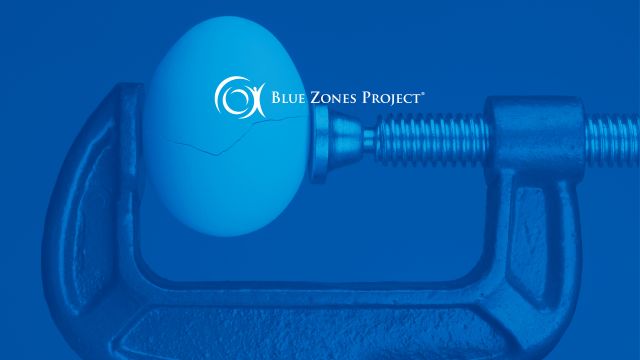An alarming three out of four doctor visits are due to stress-related conditions, and one out of five Americans experience “extreme stress.”
Part of the problem? News and social media. “As a society, we’re very hard on ourselves these days. I think we discount the pressures and expectations that we have,” says chronic disease and preventive medicine specialist Jessica Cline, FNP, of Lee's Summit Medical Center in Kansas City, Missouri.
Recognizing the symptoms of stress is the first step in getting the condition under control. “When my patients come in with symptoms, we talk about what is really affecting their day to day life. Based on those levels, we work through a management plan,” says Cline.
Here are the 11 signs of stress that Cline sees most often at her practice:
- Irritability
- Anxiety
- Panic attacks
- Sadness
- Loss of joy in activities that used to be enjoyable
- Difficulty sleeping
- Loss of appetite or increased appetite
- Difficulty focusing or making decisions
- Chronic pain
- The desire to increase alcohol or drug use
While you may not think life’s stressors are causing much harm, prolonged acute stress can quickly turn into chronic stress, which may increase your risk of certain health conditions including:
- Hypertension
- Heart disease
- Worsened asthma and COPD symptoms
- Weight gain or difficulty losing weight
- Fatty liver disease
- Gastric issues like acid reflux
- Fatigue
- Difficulty sleeping
- Anxiety
8 ways to stress less
Lower your risk of these health conditions by being mindful of your everyday habits and how you handle stressful situations. Here’s how you can reduce the amount of stress in your life:
1. Unplug
We’re extremely dependent on technology these days, but it’s a huge contributor to stress for a lot of patients, says Cline.
Studies show that unplugging from work demands outside of regular work hours is important for psychological recovery and overall health. “Try disconnecting in the evenings. It will help you refocus,” says Cline. And even young adults need to ditch their computers every once in a while, too. High computer use (four or more hours per day) has been associated with sleep disturbances and poorer school performance in those ages 20 to 24 years old—two issues that can cause stress and anxiety.
2. Get organized
It’s easy to get stressed out when you feel like you’re not in control of your own environment. Having a sense of organization with what you’re doing on a daily basis, gives you a centered focus, says Cline.
Keep a day planner or calendar to organize your days and weeks, and set reminders in your phone to alert yourself of important tasks or events. Packing lunches, organizing bags and laying out clothes each night before you go to sleep will streamline your mornings so you can start your day off on the right foot.
3. Ask for help
“Ask for help if you’re feeling overwhelmed or having trouble getting from point A to point B,” says Cline. A support system that can help out will relief your stress.
4. Focus on leading a healthy life
When you feel like your best self, you’re less stressed, says Cline. A healthy diet and a regular exercise regimen will help you get there.
A balanced diet filled with fiber, lean proteins and carbohydrate-rich foods like brown grains, fruits and vegetables help the brain produce serotonin, a hormone that calms the mind. Fresh fruits and vegetables are packed with vitamin C, an antioxidant that fights the effects of stress and helps immunity. These foods can help you maintain a healthy weight, too.
A regular exercise regimen with help you stay physically fit and act as a stress reliever. The Centers for Disease Control and Prevention recommends 150 minutes of moderate aerobic exercise like brisk walking mixed with two days of strength training a week.
5. Sleep
"We’re only ever able to function as well as we allow ourselves to be prepared to function for—and sleep does that for us.”
Sleep helps us wind down and get energized for the next day, so if you skimp on sleep, it’s likely your anxiety and stress levels will be higher the following day. And it goes both ways— when you’re stressed out, it’s likely you won’t sleep as well either. Most adults should aim to get seven to nine hours of sleep per night.
6. Don’t overdo it on alcohol
After a long and stressful day at work, it’s easy to reach for the wine, but too much alcohol can cause restlessness, anxiety and other sleep problems, which we know causes more stress. Women should stick to one drink per day, and men should have no more than two.
7. Steal a little time for yourself
When the ultimate goal is living a longer life, it’s imperative you make time for yourself, says Cline. A few minutes in solitude to enjoy activities you love, dinner or journaling, will leave you feeling refreshed and may improve your concentration and productivity. You may learn more about yourself, too.
And if you’re in the middle of a stressful moment, take a moment alone to step outside, get some fresh air and practice deep breathing. “Thinking before you react reduces long term stress,” says Cline.
8. Reach out to a professional
A professional counselor or psychologist can help you understand your stressors and work with you to create a plan for managing the type of stress you’re experiencing. “A neutral party can be really therapeutic,” adds Cline.
Organizations like Stress.org offer guided meditation, music therapy, and stress management lectures, and many churches or places of worship can help you find budget-friendly counselors. See your primary care physician for psychologist recommendations, too.
If you’re not sure whether or not you need to make some of these lifestyle changes, the RealAge Test can help you learn more about your mental and physical health.






